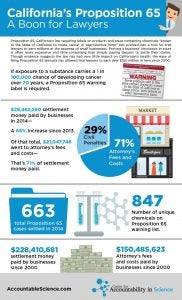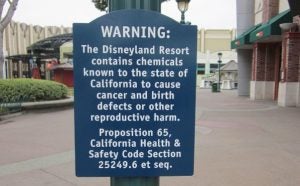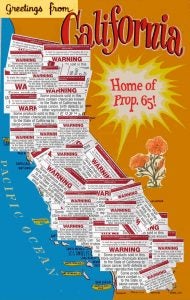In an ongoing debate, mostly related to money and politics, the issue of Roundup herbicide is one that continually swirls social media. The latest? Apparently, the state of California can now require Roundup to have a label on it stating that it is a possible carcinogen.
The problem here is that a majority of regulatory scientific bodies of evidence prove that it is not a carcinogen. The only regulatory body that claims it is a possible carcinogen is the International Agency for Research on Cancer by the World Health Organization, which has been under much scrutiny lately. While some people turn to the IARC as the “gold standard” of cancer research, some have found their methodology heavily flawed and, according to them, pretty much everything causes cancer. The IARC measures hazards, not risks.

The fact that Roundup will carry a carcinogenic label now has ruffled some feathers, no doubt. But Proposition 65 labels pretty much everything carcinogenic, including matches, aloe vera, soda pop, Christmas lights, fishing poles, and even Disneyland. If there is a 1 in 100,000 chance of developing cancer over 70 years, a prop 65 label is required in California. This has resulted in a significant number of lawyers filing proposition 65 lawsuits and has brought lawyers over $150 million in fees since 2000. So even if something isn’t actually that dangerous and the odds are very slim, how does and will this continue to affect small California businesses?
Cancer is a very serious disease and we have all probably known someone who has tragically been affected by it. But are these labels justifiable when there are over 900 chemicals and activities listed that might cause cancer? How does one know?

In a world where lobbyists and fearmongering have influence, I can’t help but chuckle at the fact that Monsanto and Roundup are such a boogeyman. I mean, Roundup has been off patent for decades and is made by many different companies, and chemical pesticides have been used in agriculture for thousands of years. How come Roundup is such a big deal when it is one of hundreds of crop protectant products farmers use? Roundup is less toxic than table salt (the dose makes the poison) and has been a very safe and effective product for us as farmers. They need to focus their energy on things that are far worse for us — like those nasty insecticides that have phased out thanks to the Bt trait of GMOs!
As I’ve previously pointed out, the organic industry-sponsored lobbying groups are always out to try to cherry pick data to push their agenda driven narrative, even if that means taking one email out of context from nearly 20 years ago to try to claim another conspiracy theory. US Right to Know led by Gary Ruskin has attempted to drag Monsanto through the mud, and I wouldn’t be surprised if their hands were in this as well. Even the IARC classification that states Roundup as a possible carcinogen cited Seralini, which is one of the most highly discredited, debunked, and retracted studies in recent agricultural history. Remember, according to the IARC, everything causes cancer except for “maybe” your toothbrush. Your toothbrush/yoga pants “might” not give you cancer.
As farmers, we hear about this Roundup fear sometimes. We will get something in the mail or hear a commercial on the radio that says, “Farmers! Have you developed lymphoma after using roundup? Call the law offices of XYZ NOW!” As usual, follow the money, follow the greed, follow the law office of XYZ, who’s hoping they have a case and wants to make money. I am wondering … will the law office of XYZ also be asking if we developed cancer from coffee? Because I’m exposed to that daily while I’m only exposed to Roundup two days out of an entire year, and they’re both carcinogenic according to the IARC. Hmm…
If you apply for a job as a hairdresser, does the application have a warning on it, “This job may cause cancer?” What about people who work the night shift? Where does it end?

Michelle Miller, the Farm Babe, is an Iowa-based farmer, public speaker and writer, who lives and works with her boyfriend on their farm which consists of row crops, beef cattle, and sheep. She believes education is key in bridging the gap between farmers and consumers.



